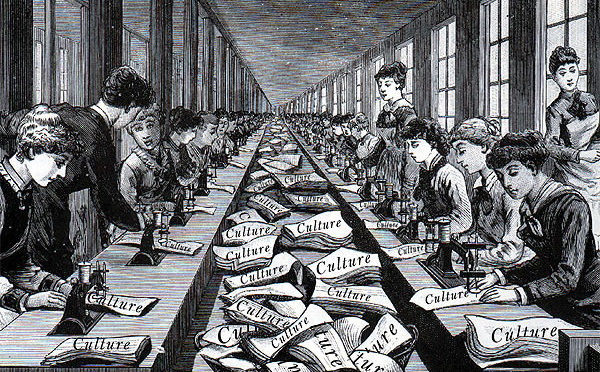The culture industry combines traditional and modern components to create items that are mass-produced on time and have a substantial impact on mass consumption. Due to modern technology advancements, economic and administrative centralization, and the branches’ structural similarity and coordination, the system has few gaps. Traditional and contemporary aspects are combined by the cultural industry, which also influences mass consumerism by delivering mass-produced goods on time. Systems with few gaps are produced via centralization and structural similarity.

First of all, the cultural industry has made great contributions to the economy. As a huge industrial chain, the cultural industry encompasses a wide range of fields such as film, music, publishing, entertainment and games. The development of these fields not only creates a large number of employment opportunities, but also drives the development of related industries. For example, the film industry has driven the development of cinema construction, film and television equipment manufacturing, ancillary services and other industries, forming a complete chain of output value. Similarly, the prosperity of the music industry has also given rise to the rise of related industries such as music production, sales of audio equipment and concert organisation. It can be said that the cultural industry not only provides strong support for economic growth, but also creates colourful employment opportunities for people.
Secondly, the impact of cultural industry on society is also reflected in cultural export. With the deepening of global exchanges, there are more extensive and deeper exchanges between the cultures of different countries and regions. The export of cultural products has enabled more people to understand the characteristics and charms of different cultures, and enhanced mutual understanding and friendship among people. For example, traditional cultural programmes such as Chinese kung-fu films and the Dai Water Lantern Festival have become world-wide spectacles, attracting a large number of international tourists to visit and watch them. This not only promotes the development of tourism, but also plays a positive role in promoting the inheritance and preservation of culture. At the same time, cultural export also provides an important opportunity for national image building. Countries with unique cultural characteristics can enhance their soft power and improve the recognition and influence of their national image through the promotion and export of cultural industries.

The term “digitalization” has gained popularity in various facets of our existence. As a result, it has had a considerable impact on the cultural and creative industries sector as well as substantial economic and social effects. The economy, employment market, and quality of life are all significantly impacted by the cultural and creative industries, some of which are among the fastest expanding sectors of the economy. Institutions in the creative industries have encountered new difficulties in adjusting to this changing environment while adhering to their mission and core values as a result of the tremendous wave of digitization. The technological, political, and economic developments must be incorporated into their business strategies if companies are to succeed. In today’s society, the cultural industry has become a more and more important part of the water. It has not only become an engine of economic growth, but also has a far-reaching impact on society.
Reference:
Adorno, T.W. and Rabinbach, A.G. (1975) ‘Culture industry reconsidered’, New German Critique, (6), p. 12.
Prokůpek, M. (2019) ‘Digitalization of cultural and creative industries and its economic and Social Impact’, Advances in Marketing, Customer Relationship Management, and E-Services, pp. 117–140.


I agree with what you have posted, the cultural industry is indeed a very large industrial chain, it can also bring from all aspects of the originator of the economic and cultural publicity effect can not be underestimated, especially in the cultural identity can bring a considerable impact on the cross-cultural exchanges between the foreigners will form an impression of the country or the culture!
The cultural industry has a vital impact on individuals, society, and the country. After individuals have satisfied their needs for food and clothing, they will begin to aspire to improve their cultural qualities, and the cultural industry can bring people spiritual needs at this time. Secondly, the cultural industry can drive social development and economic growth, and the extension industry of the cultural industry contributes to the composition of the social atmosphere and the sustainable development of the social economy. Finally, the cultural industry is also important at the national level, and the smooth development of the cultural industry is conducive to cultural exchanges and economic cooperation between the country and other countries.
I think you can add some relevant to your own experience inside your blog so that you can better understand the connection between the cultural industry and us.